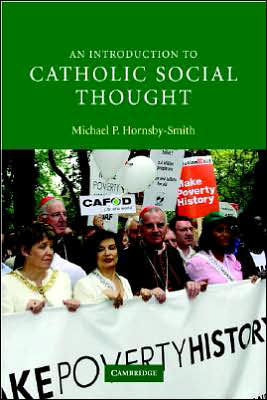
|
Posted February 8, 2007
Book: An Introduction to Catholic Social Thought Author: Michael P. Hornsby-Smith Cambridge University Press. New York. 2006. Pp. 387 An Excerpt from the Jacket:
The book is organized in four stages. Part I outlines the variety of domestic and international injustices and seeks to offer a social analysis of the causes of these injustices. Part II offers a theological reflection on the characteristics of the kingdom of God which Christians are urged to seek. Part III reviews Catholic social thought in six main areas: human rights, the family and bioethical issues, economic life, social exclusion, authentic development, and war and peace. Part IV completes the cycle with a consideration of appropriate social action responses to the injustices which the author has identified and analyzed An Excerpt from the Book: This is a useful summary of methods which can legitimately be employed to challenge existing structures and powers and to seek structural changes. It is up to each individual to decide how to respond and on what to focus. The following are just some of the ways people can become active, depending on their own personal circumstances. Cultivate a spirituality of justice-seeking: spend some time each day reading scriptures and Catholic social thought with new eyes. Start in a small way doing something; e.g., a letter to protest or to a prisoner of conscience. . . Become an ethically conscious consumer: Activists can become reflective about their own consumer behavior and aware of whether or not their lifestyle and consumer choices encourage fair trade practices or are environmentally friendly. . . . Become an ethical investor: Those with savings and investments can become aware of the ethical investment movement and ethical saving. . . Develop a concern for the environment: The recycling of paper, glass and metals can be taken seriously and an enthusiasm for the composting of garden and food waste developed. . . . Seek relationships with marginalized and excluded people: Some direct contact with oppressed groups seems to be a requirement for discipleship. . . Join a group or a campaigning organization. . . Join or start a parish justice and peace group . . . . Become familiar with Catholic social thought . . . . Participate in political action. . . . Share gifts with those less fortunate. . . . |
|
